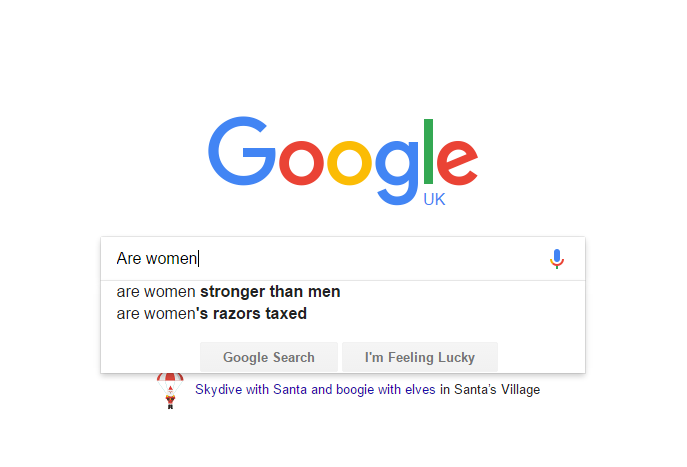Google autocomplete alterations have sparked an interesting debate

This Sunday, an article on The Observer made the suggestion that rightwing propagandists have gotten very good at using the Internet. So good, in fact, that they have created their very own web within the world wide web. This metaphorical ‘dark web’, not to be confused with the darknet, is seemingly seeping through on through on to ‘our web’. The issue of fake news has been a hot debate topic since last month when Obama urged us to be cautious in the digital age. And now, the target has been set on Google autocomplete.
So what prompt the article in The Observer, however, was something else entirely. After typing ‘Are Jews…’ on Google, the author noted that the third suggestion in autocomplete was something unexpected and, quite frankly, offensive. After suggesting ‘Are Jews white’ and ‘Are Jews Christian’, the search engine suggested that the author might want to search for ‘Are Jews evil’ instead. This prompted additional queries, including ‘Are women…’ which found the equally offensive suggestion of ‘Are women evil?’.
The article went on to note that these Google autocomplete suggestions were misinforming users and feeding them false and offensive information about a variety of different topics, including politics. Some of the arguments made in the article were considerably valid, such as the fact that Internet tracking and marketing companies can and do influence a wide variety of search results, particularly due to the power of personalized marketing. Human beings, after all, are thought to be quite easily influenced, particularly if their own views are being reinforced by others.
The problem here, however, is that Google does not come up with autocomplete suggestions all on its own. Those ‘tech-savvy rightwingers’, as the article calls them, are simply using the exact same technologies available to ‘tech-savvy leftwingers’. They are creating links in their websites, circulating them through social media, and sharing them with the world at large. As such, they also tend to appear on Google autocomplete.
Google’s autocomplete searches neither make it racist, as others have suggested in the past, nor do they make it evil. Google’s algorithms do not discriminate between right and wrong any further than their coding allows. Instead, all of these suggestions are reflections of our society. Reflections of right and wrong, perhaps, but reflections nonetheless. Google is, of course, a private company. As such, they have a vested interest in protecting their image and promoting their own interests. One could even argue that removing any search result is their right though organizations like the European Commission would certainly say that this violates trust regulations.
So the question at the heart of this debate is seemingly a simple one; its branches, however, are not. Should Google remove results deemed offensive? If so, what should the criteria for offense be? When does censorship become a problem? While it is possible that these questions have no definitive answers, it is now more vital to ask them than ever before. Tech companies like Google and Facebook have immense power. Unfortunately, this is something that the general public is only now starting to realize. In the digital world of information where mobile phones and web searches have become an integral part of our lives, we should never stop asking those types of questions.



